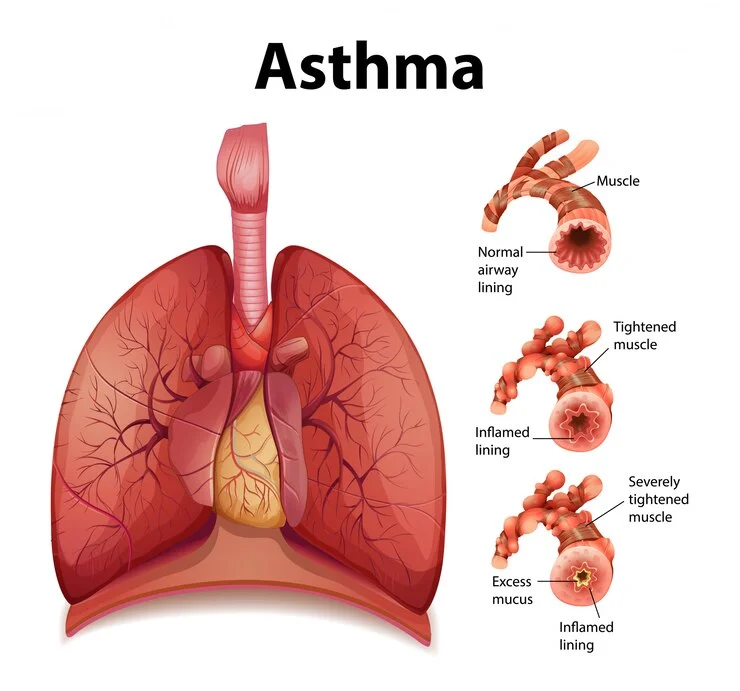Exploring the Challenges of Asthma, Unraveling Insights, and Championing Strategies
for Breathing Well
Asthma, a chronic respiratory condition, affects millions of
people worldwide, causing symptoms such as wheezing, shortness of breath, chest tightness,
and coughing. While asthma can be a lifelong condition, with proper management and lifestyle
adjustments, individuals can effectively control symptoms and lead active, fulfilling lives.
In this article, we delve into the complexities of asthma, dispel myths, and offer
empowering strategies for living well with this condition.
Understanding Asthma
Asthma is a chronic inflammatory condition characterized by
inflammation and narrowing of the airways, leading to difficulty breathing and airflow
obstruction. While the exact cause of asthma remains unknown, factors such as genetics,
environmental triggers, and respiratory infections are believed to play significant roles in
its development. Asthma symptoms can range from mild to severe and may vary in frequency and
intensity from person to person.
Dispelling Myths and Misconceptions
Despite advances in medical research and treatment options, asthma
is often surrounded by myths and misconceptions. One common misconception is that asthma is
purely a psychological condition or a sign of weakness, when in fact, it is a legitimate
medical condition with physiological origins. Another myth is that asthma is a childhood
condition that individuals outgrow as they age, when in reality, asthma can persist into
adulthood and require ongoing management.
Managing Symptoms and Triggers
Effective management of asthma involves identifying and avoiding triggers, taking prescribed
medications as directed, and implementing lifestyle modifications to reduce symptoms and
improve quality of life. Medications such as bronchodilators, corticosteroids, and
leukotriene modifiers may be prescribed to relieve inflammation, open the airways, and
prevent asthma attacks. In addition to medication, individuals can benefit from creating an
asthma action plan, practicing proper inhaler technique, and staying vigilant for signs of
worsening symptoms.
Preventing Asthma Attacks and Complications
Uncontrolled asthma can lead to frequent asthma attacks, respiratory distress, and
complications such as respiratory infections, pneumonia, and even life-threatening asthma
exacerbations. By actively managing symptoms, avoiding triggers such as allergens, smoke,
pollution, and respiratory infections, and adhering to treatment plans, individuals can
reduce the risk of asthma attacks and complications associated with asthma. It's also
important to stay up-to-date with vaccinations, maintain a healthy lifestyle, and seek
prompt medical attention for worsening symptoms or emergency situations.
Embracing Support and Advocacy
Living with asthma can be challenging, but individuals do not have to face it alone. Support
groups, online communities, and advocacy organizations provide valuable resources,
information, and emotional support for individuals and families affected by asthma. By
connecting with others who share similar experiences, individuals can find encouragement,
understanding, and practical advice to help them navigate the ups and downs of living with
asthma.
In Conclusion: Breathing Well
Asthma is a complex condition that requires lifelong management, but with the right tools,
resources, and support, individuals can lead fulfilling lives and maintain their respiratory
health. By understanding the fundamentals of asthma, dispelling myths, and embracing
strategies for symptom control and self-care, individuals can take control of their health
and well-being. Let us continue to raise awareness, advocate for access to healthcare
resources, and support research efforts to improve asthma treatment and care. Together, we
can empower individuals living with asthma to breathe easy and enjoy a life filled with
health, vitality, and vitality.





